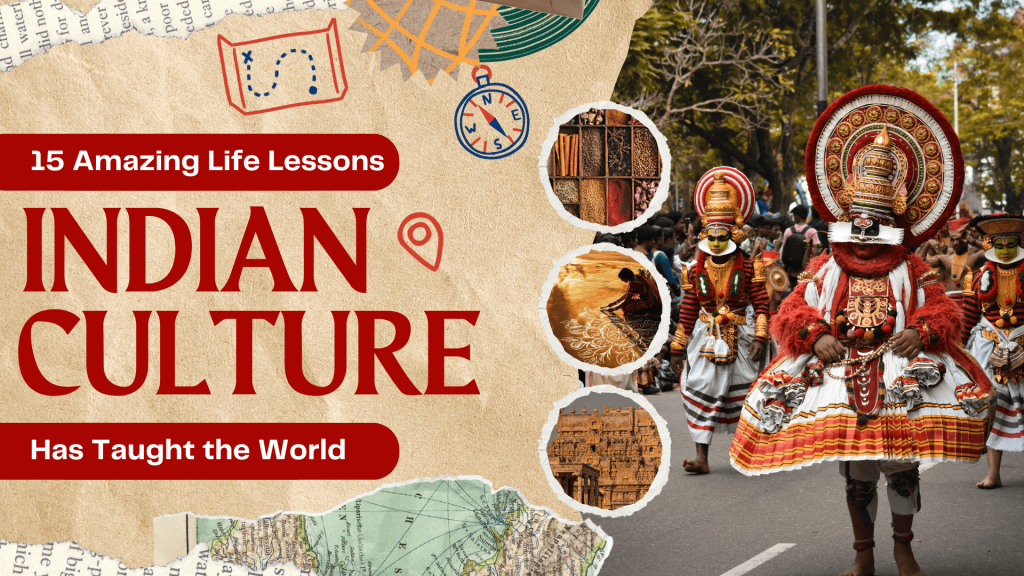When people think of India, they imagine vibrant colors, bustling markets, soulful music, ancient temples, and families gathered over steaming cups of chai. But India is much more than what meets the eye. Beneath the vivid scenes lies a deep well of Indian wisdom, a timeless philosophy shaped by thousands of years of traditions, spirituality, and lived experience.
Indian culture is not merely a collection of customs, it is a complete lifestyle, one that teaches balance, gratitude, discipline, joy, and harmony. From the smallest daily rituals to large community celebrations, every action carries meaning. These lessons are quietly influencing the world today in wellness, mindful living, sustainable practices, food habits, and even innovation.
Here are 15 powerful cultural lessons from India that show why the Indian way of life continues to inspire people across the globe.
1. Wash Before You Wipe (The Roots of Purity & Wellness)

Long before modern sanitation trends, India followed the principle of shuddhi (purification). Using water instead of tissue wasn’t just a hygiene choice, it was part of traditional Indian practices that viewed cleanliness as a gateway to physical and spiritual purity.
This practice teaches the world that true hygiene must be thorough, intentional, and proactive, not superficial. On a deeper level, it symbolizes the Indian belief that clearing away impurities, whether physical or emotional, creates space for better things in life.
2. Don’t Just Fry Your Food, Flavour It (The Art of Masala)
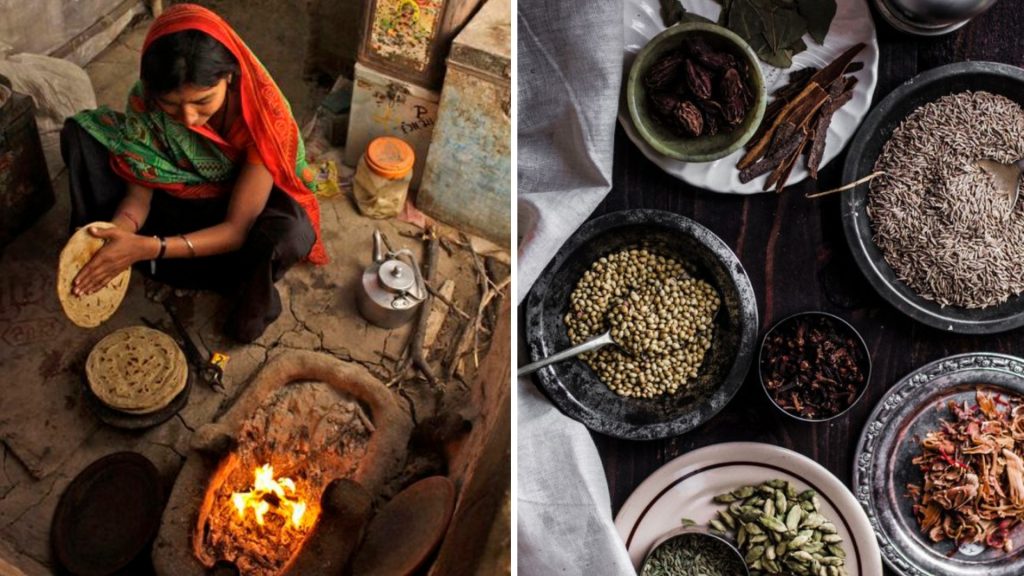
Indian cuisine is more than food, it’s a cultural identity. The skillful roasting of spices like cumin, coriander, fenugreek, cardamom, cinnamon, and turmeric is an art form shaped over centuries.
Indian cooking teaches a powerful life lesson. Just like a masala mix adds character to a dish, the Indian lifestyle encourages adding passion, creativity, and flavour to everything you do.
This culinary wisdom has now influenced global food trends, Ayurveda-based diets, and the popularity of Indian vegetarian dishes worldwide.
3. Celebrations Don’t Always Need a Formal Setting

In India, joy spills into streets, homes, courtyards, and workplaces. Celebrations don’t wait for perfect decor or dress codes. A new job, the first rain of the season, a family milestone, a festival, everything is a reason to gather, dance, eat, and share.
This shows one of the core Indian values. Happiness is not planned, it is felt. It doesn’t need grandeur but only heart. This spontaneous approach to celebration teaches the world how to embrace everyday joy.
4. Humanity Comes First (The Spirit of Seva)
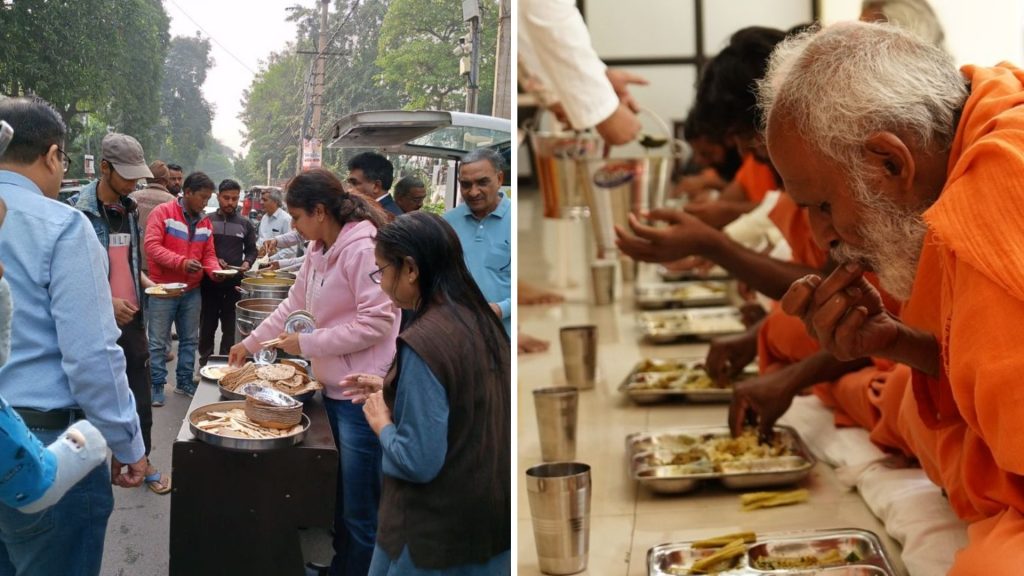
At the heart of Indian culture is Seva, meaning selfless service.
You see it in:
- Gurudwaras feeding millions through community kitchens
- Temples offering free meals (prasad)
- Strangers helping strangers during floods or crises
- Neighbours sharing food in times of need
Seva reflects India’s belief that compassion is the purest form of humanity. It reminds us that when we help someone without expecting anything in return, we elevate our own soul. This Indian philosophy has inspired global volunteering movements and humanitarian initiatives.
5. You Don’t Need a Reason to Celebrate Life
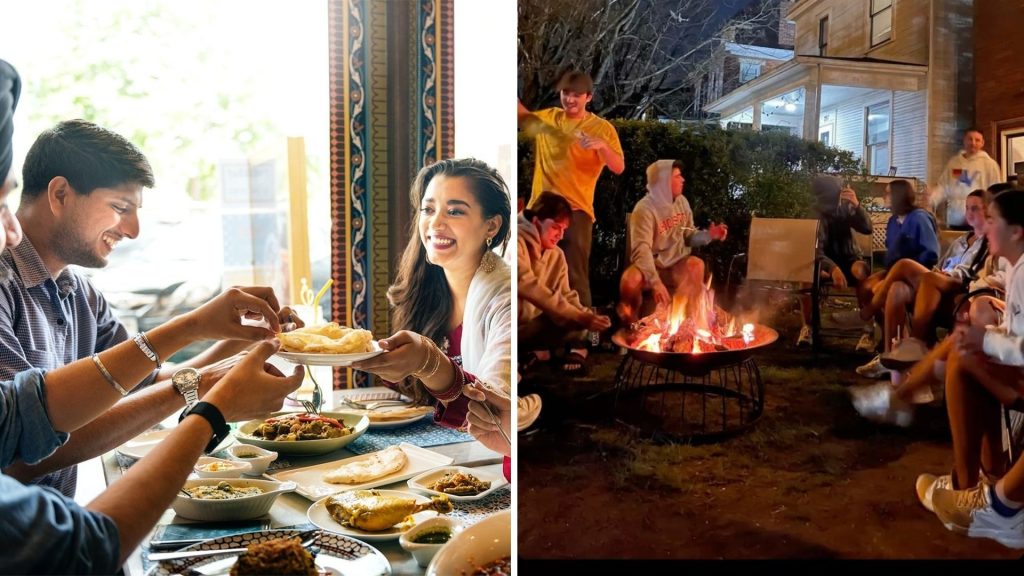
Indians celebrate monsoons with pakoras, exam results with sweets, new beginnings with coconut-breaking rituals, and even simple gatherings with tea and snacks.
This lesson reflects an important Indian mindset. Everyday life is worth celebrating. Moments don’t have to be big to be meaningful. In a modern world obsessed with milestones, India gently teaches gratitude for the small moments.
6. The Genius of Jugaad Innovation

Jugaad is a word that captures India’s inventive spirit. It means
- Making the best of what you have
- Finding unconventional solutions
- Solving problems creatively with minimal resources
From makeshift tools to rural engineering marvels, India proves that innovation doesn’t always come from money, it comes from mindset.
This concept has inspired global discussions on frugal innovation, sustainability, and resource optimization.
7. You Can’t Control Everything

Karma is one of the most profound philosophies of India. It teaches
- Do your duty sincerely.
- Detach from the results.
- Let go of what you can’t control.
This universal Indian wisdom has influenced mindfulness practices, mental health approaches, and modern stress-management techniques.
Karma is not about fate it is about action, clarity, responsibility, and peace.
8. Nerds Have Always Been Cool in India
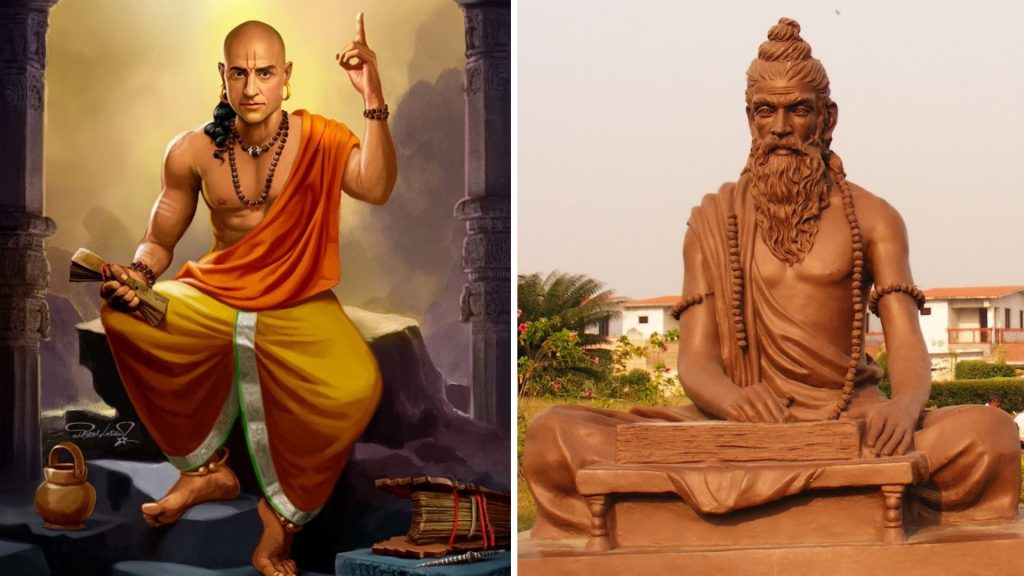
Long before the world celebrated scientists and thinkers, India revered its scholars. Legends like,
- Aryabhata (gave the world “zero”)
- Sushruta (father of surgery)
- Chanakya (master strategist)
- Nalanda University scholars
were treated with respect and dignity. This cultural lesson reminds the world that knowledge is a superpower and intellectual pursuit is a noble path.
9. Happiness Lives in Simple Moments

Indian homes are filled with ordinary yet beautiful rituals,
- Evening walks
- Sharing hot chai
- Praying together
- Neighbours chatting on terraces
- Children playing outside
- Mothers lighting diyas at dusk
These everyday scenes reflect the Indian way of mindfulness present, grounded, and grateful. India teaches us that contentment is not found in material possessions but in connection and presence.
10. Festivals Are for Everyone, Not Just Communities
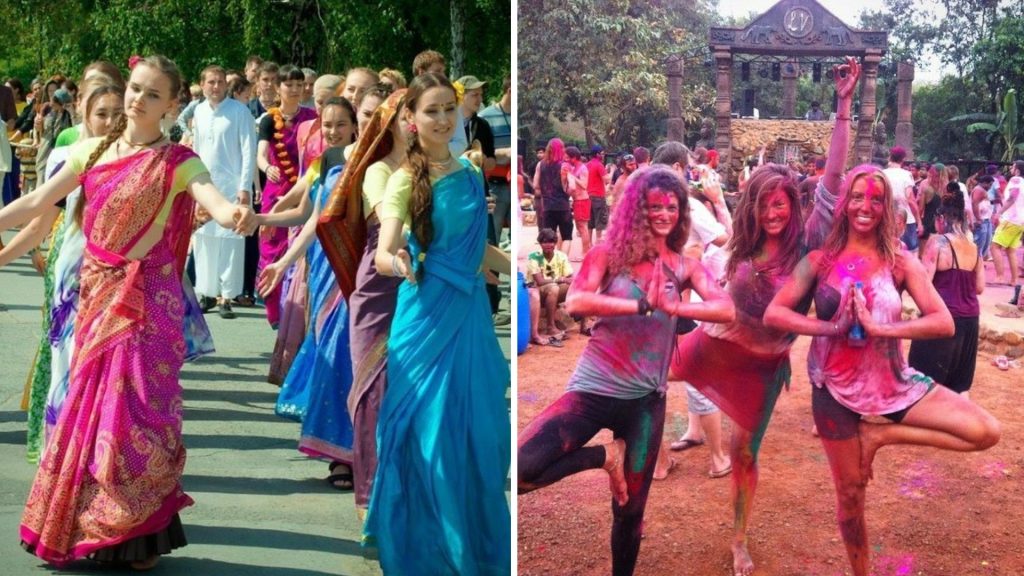
India celebrates festivals with unmatched energy.
What makes them special is that they are Inclusive, Community-driven, Open to all faiths. People celebrate Diwali, Eid, Pongal, Baisakhi, Christmas, Onam, and Holi irrespective of religion.
This is one of the most beautiful cultural lessons from India, Festivals are not about religion. They are about humanity, unity, food, joy, and light.
11. Be Yourself
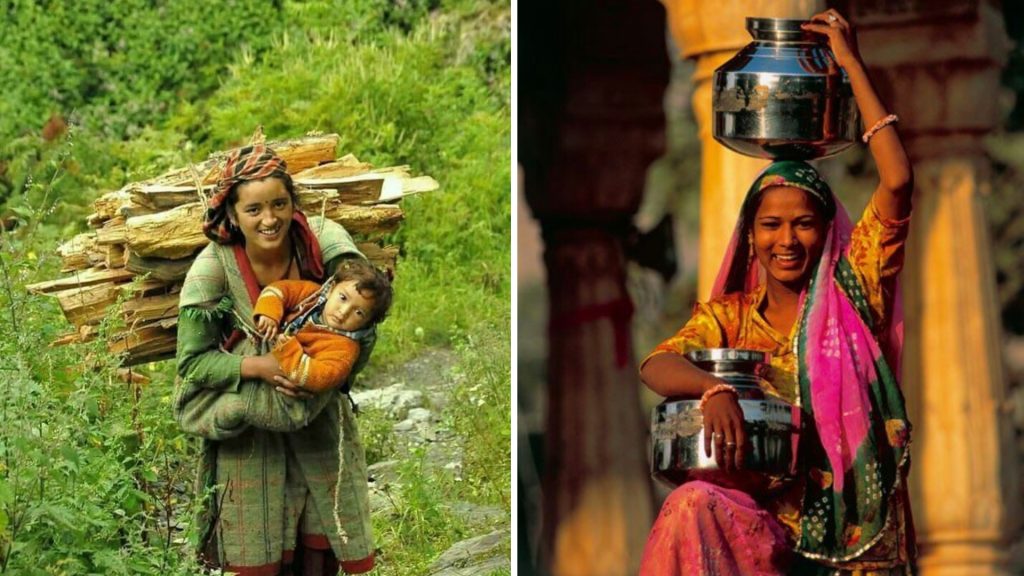
India is one of the most diverse civilizations in the world. Languages, dialects, cuisines, clothing, art, and beliefs vary every few kilometers.
This diversity teaches you to be different and still belong.
Authenticity is strength, not rebellion. This inclusiveness encourages individuality while maintaining social harmony, a balance the world deeply admires.
12. Religion Doesn’t Have to Divide People
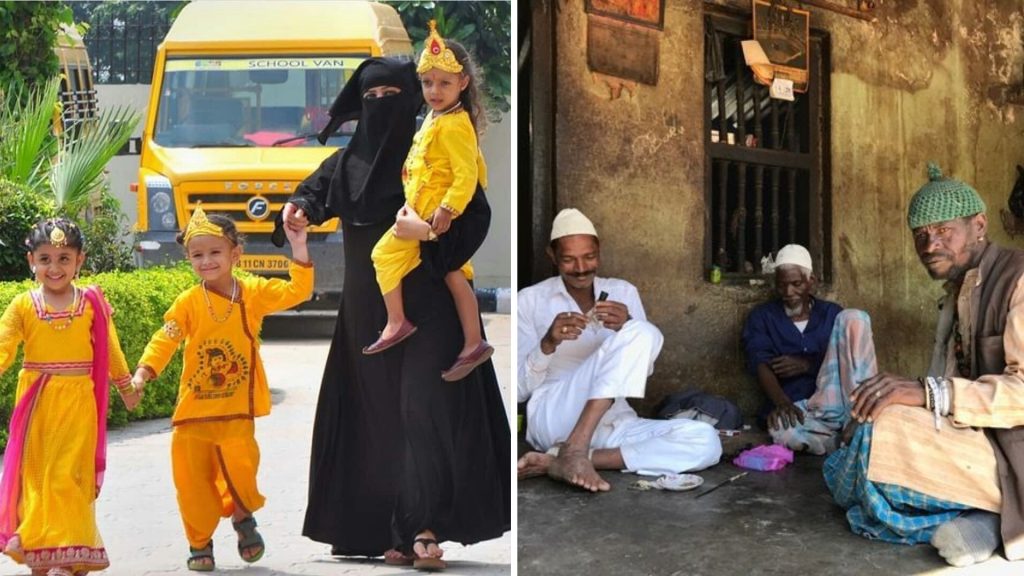
India’s syncretic culture is its biggest treasure. Every day, you see,
- Hindus visiting Sufi shrines
- Muslims celebrating Holi with friends
- Sikhs feeding people of every faith
- Christians participating in local Diwali rituals
This illustrates a powerful Indian value faith can unify more than it divides. India proves that spirituality can be a bridge rather than a boundary.
13. Don’t Judge a Book by Its Cover
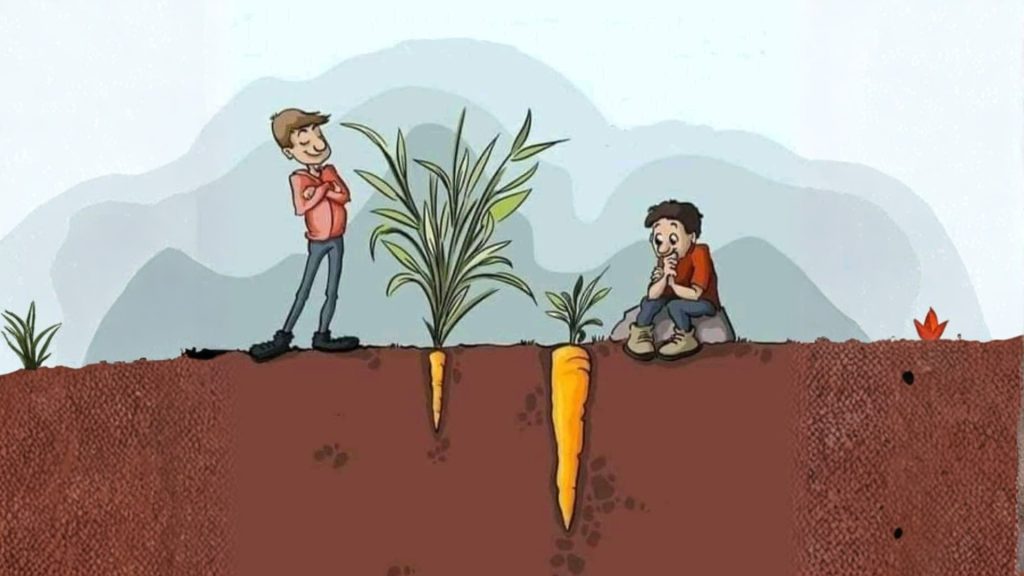
India constantly challenges assumptions. Some of the greatest wisdom comes from:
- Street vendors
- Auto-rickshaw drivers
- Elders in small villages
- Modest schoolteachers
- Local cooks and artisans
India’s lesson is simple, Humility often hides brilliance.
Simplicity often hides mastery.
14. Vegetarian Food Can Be Exciting
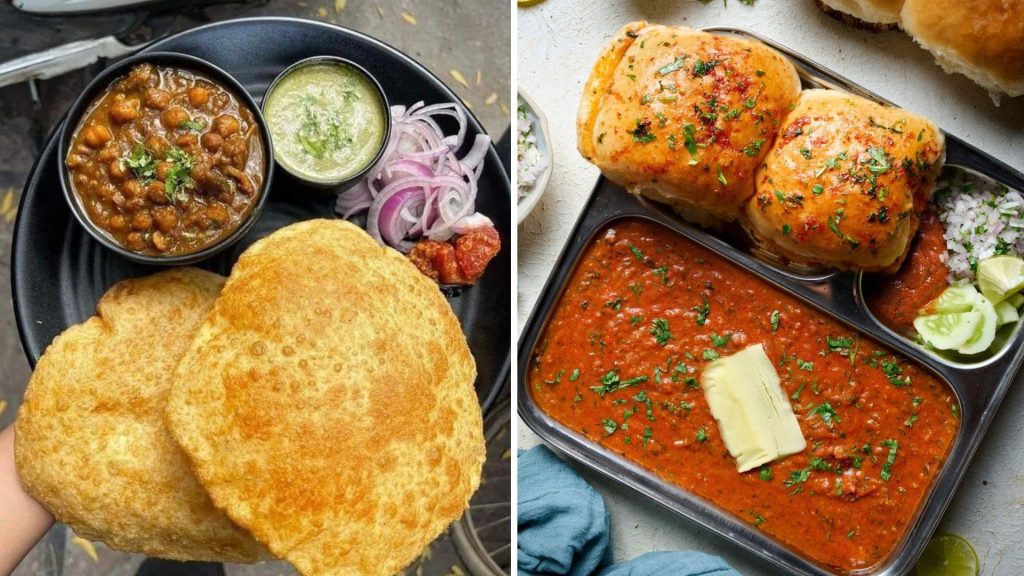
India is home to one of the world’s most diverse vegetarian cuisines. From North to South to East to West, the country offers a delicious range of plant-based dishes,
- Paneer butter masala
- Chole bhature
- Dal tadka
- Masala dosa
- Pav bhaji
- Rajma chawal
- Idli sambhar
- Aloo paratha
India teaches that vegetarian food can be healthy, sustainable, and incredibly flavourful. This has influenced global vegan and plant-based diet trends.
15. End Everything on a Sweet Note
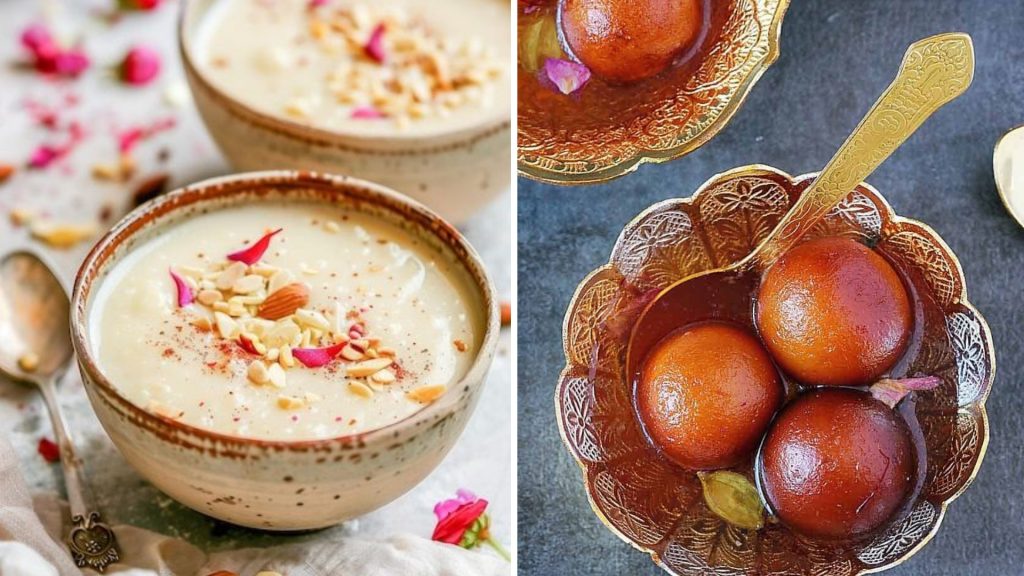
Whether it’s the end of a meal or the conclusion of a meeting, India believes in finishing with sweetness. Offerings like,
- Gulab jamun
- Kheer
- Laddoos
- Rasgulla
- Barfi
symbolize harmony and positivity. This cultural habit carries a beautiful message, even if moments are difficult, always end with kindness.
A Timeless Indian Wisdom for the Modern World
These lessons from Indian culture are not preachings, they are lived realities. They come from homes, festivals, traditions, and centuries of accumulated human experience. Indian lifestyle values gratitude, balance, community, inclusivity, innovation, spirituality, and compassion make it one of the richest cultures in the world.
